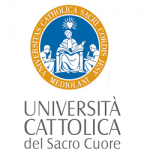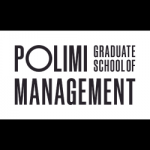Planning to Study Abroad? Register Now & Get a Call from Us.
- Home >
- Study Abroad >
- Study in Italy >
- UNIVERSITIES IN ITALY
Universita Cattolica del Sacro Cuore
Location: Milano, Italy
Bachelors: EUR 8500
Entry Criteria: CAE ,IELTS MORE
Domus Academy
Location: Milano, Italy
Bachelors: EUR 16000 Masters: EUR 21500
Entry Criteria: IELTS ,PTE MORE
- 1
- 2
List of Universities in Italy
This is an exciting time to study abroad, in Italy, but why? For a very long time now Italy has dominated the world stage in higher education. Some of the very first universities were established in Italy, like the University of Bologna, founded in 1088. The Bologna Process, an essential reform in higher studies, which is being adopted all over Europe now, was first implemented by Italy.
Reasons to Study in Universities in Italy
Here are the reasons to know why you should choose Italian universities over other universities of the world:
- There is a total of 41 universities in Italy that are successful in achieving their place in the list of QS world universities ranking 2023.
- Italy’s high-quality higher education system in the Universities is strong across the board with a rich history of innovation and research.
- There are currently more than 500 English-taught study programs available in Italian Universities. And each passing year, more and more study programs are conducted in English. Making a study in Italy easy for International students.
- A wide range of courses and programs are available in the Universities for international students in Italy. Management courses, engineering courses, designing courses, etc are a few to be named.
- When compared to other Universities in the top study abroad destination, the tuition fees universities in Italy do tend to be affordable, especially at public universities. Additionally, the government and individual universities provide scholarships to international students.
Top Universities in Italy
Italian universities have been performing well in QS World rankings. Here are the top 10 universities in Italy for international students along with their rankings:
| University | QS University Ranking 2023 |
| Polytechnic University of Milan | 139 |
|
Alma Mater Studiorum- University of Bologna |
167 |
| Sapienza University of Rome | 171 |
| Università di Padova | 243 |
| University of Milan | 324 |
| Politecnico di Torino | 325 |
| University of Pisa | 404 |
| 416 | |
| 436 | |
| University of Trento | 457 |
Cheapest universities in Italy for international students
The best part is that this country provides education at affordable costs. International students are also eligible for the same scholarships and grants as according to local students. The best universities in Italy with the affordable tuition fee are:
- University of Florence
- University of Siena
- Free University of Bozen-Bolzano
- University of Turin
- University of Padua
- Ca’Foscari University of Venice
- Sant Anna School of Advanced Studies
- University of Bologna
- Polytechnic University of Milan
- University of Trento
Study in Italian universities in English
Many institutes, especially those with upcoming graduate programs have a lot of courses that offer English as a medium of language, which is good news for people who’re not very sure of their Italian. You can pursue study programs from management courses to engineering in Italy in English. At some universities, an exam to prove your English proficiency may be required. You can take exams such as IELTS, TOEFL OR PTE.
Italy university fees
Average fees are between €850 and €1,000 (~US$900-1,060) per year at public universities in Italy, it differs from place to place, while doctoral candidates would be granted funds from the university. €12,000-18,000 (~US$12,740-19,120) per year is the basic living cost, including transport, accommodation, food, entertainment, and other expenses.
Requirements to study in Italian Universities
As part of the entry requirements to study abroad in Italy, you may need to submit the following documents as required by the university when applying for the program of your choice.
- Identity documents like a passport or EU identity card
- Academic transcript of your previous studies
- University application form
- Letter of recommendation
- Statement of Purpose
- Proof of language proficiency. Depending on the program English or Italian Language.
- Your portfolio, if you’re applying to Architecture and Designing programs.
Best MBA colleges in Italy
- SDA Bocconi School of Management
- University of Bologna - Bologna Business School
- LUISS Business School
- MIP Politecnico di Milano Graduate School of Business
- Università Di Roma
- MIB Trieste School of Management
Interesting facts about Italian universities
- Italy has a vital hotspot for foreign students. There are around 32,000 international students in Italy.
- Rome, Milan, Pisa, Bologna, all are known for being the student cities of the country. As these cities have the highest number of universities.
- Studies in Universities in Italy are particularly strong in Fashion and design areas, with many top designs and fashion schools located in the country.
- In recent years universities in the country have been engaged in vital work and research in the fields of astronomy, climate change, cancer treatment, dolphin conservation, the cell cycle, solar cell technology, and much more.
- Italy has 61 vibrant public universities, 30 private universities as well as 11 public research organizations.
There is a reason Italy is one of the most preferred study abroad destinations, and that is simply the quality of the education it offers. You will have a fantastic experience while studying at Universities in Italy.
You can check out the following universities
Top Hospitality & Tourism Universities in Italy
Top Courses to Study in Italy
What do you want to study abroad?
Top Universities to Study abroad
Where do you want to study abroad?
Reach Out To Us
Register here to get newsletters for the latest study abroad news & free counselling assistance.
















